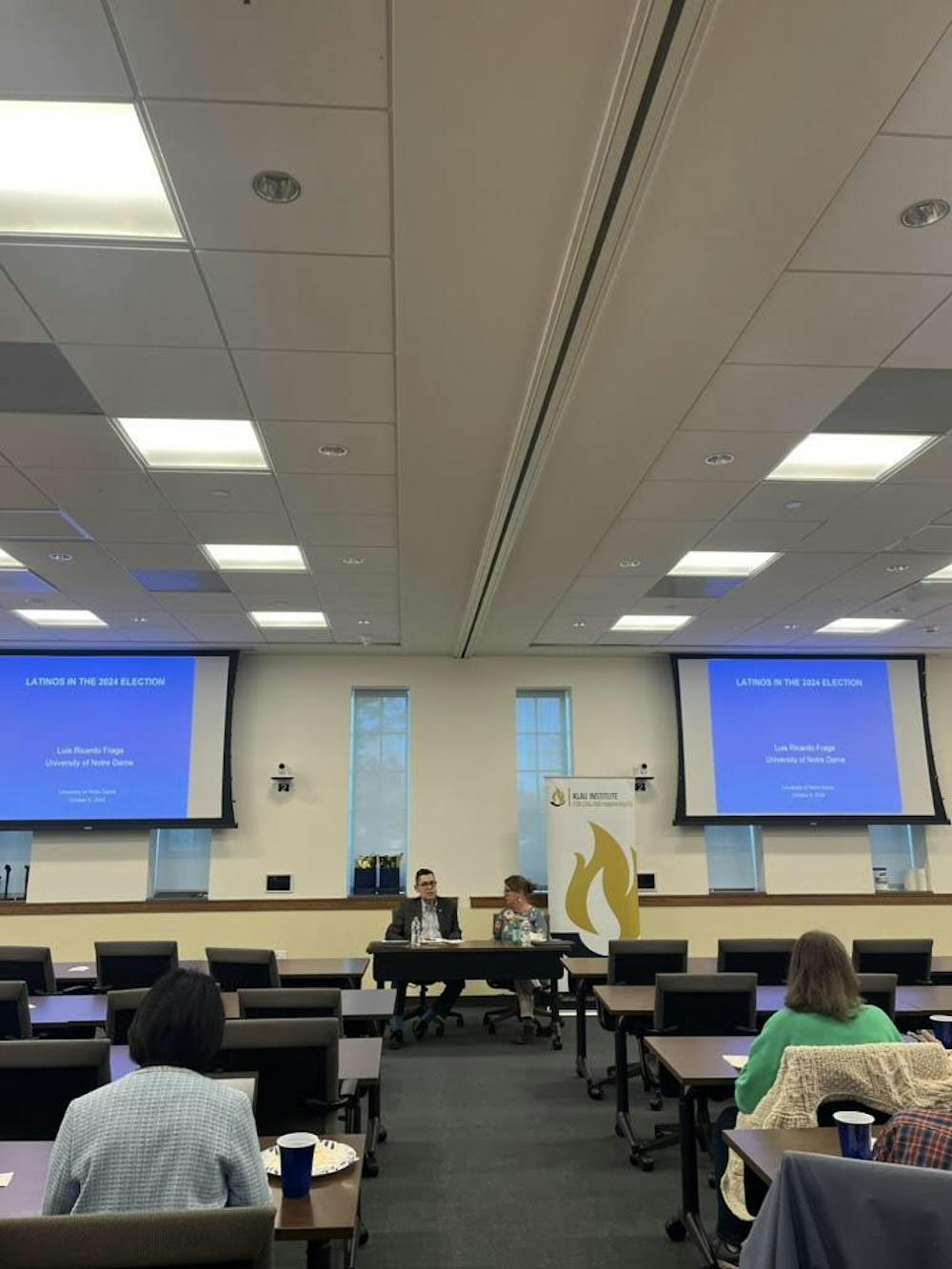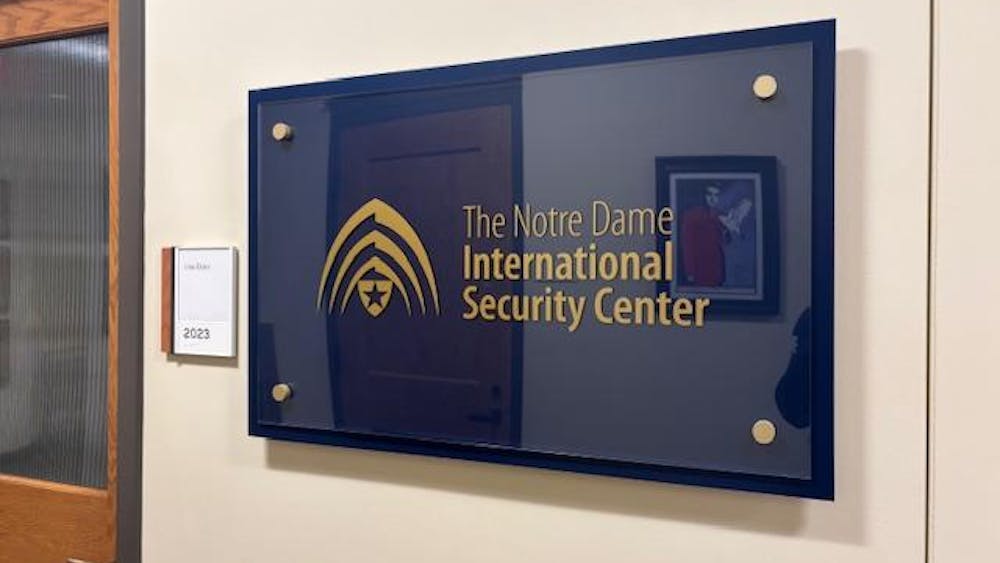On Wednesday evening, Luis Fraga, professor of transformative Latino leadership and director of the Institute for Latino Studies, and Erin Corcoran, executive director of the Kroc Institute for Peace Studies and associate teaching professor, held a discussion on the political implications of immigration. The discussion is part of the “Pizza, Pop and Politics” series, run by ND Votes and the Klau Institute for Civil & Human Rights.
Fraga opened by calling attendees to take a step back and consider the issue of immigration from a nonpartisan approach.
“I ask you to position yourself as a citizen or a resident of this country who wants to make an investment in the country,” Fraga said.
He then presented United States census data, showing that the population of those who identify as white has dropped about 26% since 1970, while the Latino population grew about 17% and the Asian population grew about 7%.
“The groups associated with historical marginalization have an increased capacity to achieve power, prestige and state within the United States,” Fraga said. “The country is changing.”
While data showed an increasing Latino population, Fraga went on to present data on the growing Latino turnout gap in the United States. He explained there are increasing numbers of eligible Latino voters but a disproportionally low growth in the number of actual Latino voters.
“That’s a challenge for democracy. That’s a challenge for the country. There is an untapped Latino electorate,” Fraga said.
Fraga detailed the unexpected consequences, or the "inclusion paradox," of the growth in the Latino population and electorate, including the electoral capture of the Latino population, symbolic mainstreaming by candidates and policy targeting.
He then discussed the United States’ history of intermingling the issue of immigration with issues of race, making it difficult to only talk about the issue of immigration and propose solutions.
“The issue of immigration is often confused to be an issue about race,” Fraga said.
He addressed the misconception that Latinos come from mostly outside of the United States, mentioning that 94% of Latinos under 18 in the U.S. right now were born in the U.S.
He ended his part of the discussion by asking attendees and the wider U.S. population, “Do we want to continue a legacy of divisiveness? Do we want a legacy of suspicion? Or do we want the legacy of leaving a country that we are proud of?”
Corcoran then discussed the substance of immigration law and policy, using her background as a lawyer and employee in the U.S. Senate working on immigration reform.
She began by framing that the issue used to not be divided along party lines.
She said about 80% of the pathways people used to take are gone and is now a cap on legal immigration in the U.S., making the process even more difficult for those trying to immigrate to the U.S.
“People could be waiting in line for upwards of 25 years if they are from certain countries,” Corcoran said. “Our current system of immigration is broken.”
Corcoran noted the U.S.’ declining birth rates and growing aging population leave labor needs in our economy that will not be filled by U.S. workers, but there is a demand for immigrant workers.
“Pretty much every economist will agree that immigrants are a net positive, economically speaking,” Corcoran said.
She noted the increased number of people crossing the southern border daily, recently upwards of about 10,000 people, and the increased number of women and children.
“We need to talk about the reason that people are coming over. Increasing barriers just reroutes the flows if we don’t address the reasons that people are coming over. The new routes place immigrants in a much more dangerous situation,” Corcoran said. “Until we address some of the root causes for why people are coming, they are going to continue to come here.”
She also touched on the fact that, historically, immigration has always been seen as a federal issue, but a lack of congressional action over decades has made certain states try to make it a state issue. Lack of action has also emboldened the executive branch to take authority, but under the Constitution, Congress is the only one that can make permanent change.
She addressed the concern and myth that immigrants are criminals and burdens on our social welfare system. She said criminality is lower for immigrants compared to residents born in the U.S. and most crimes are race-on-race crimes.
The session ended with a question-and-answer session with attendees and the professors about topics such as Asian immigration, a recent bipartisan immigration bill, Trump’s threats of mass deportation and the media’s influence on immigration perception.
Corcoran had a last call for people to “see immigrants as a human with human dignity. This will bring us closer to turning the narrative.”










